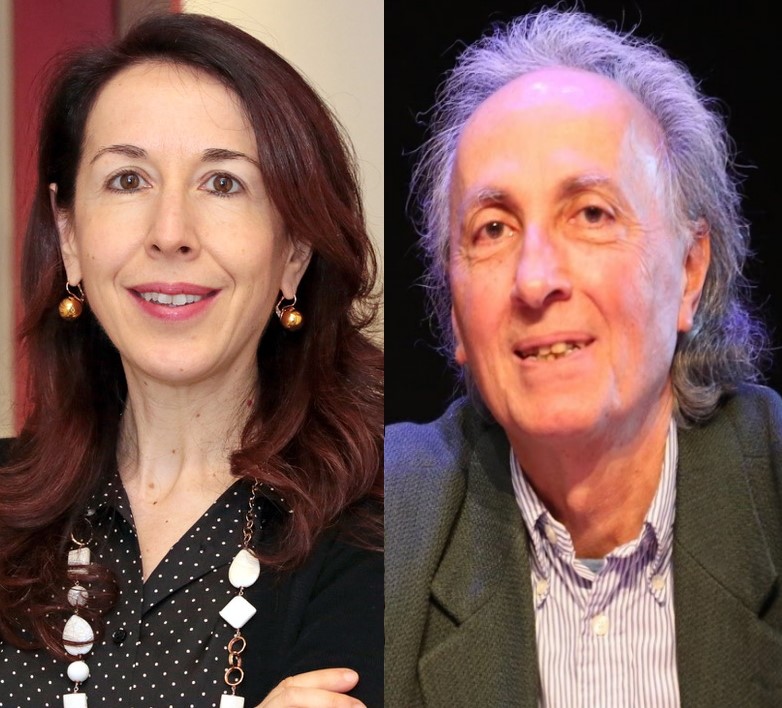Networking science.
Alessandra Buonanno and Thibault Damour

Balzan Prizewinners 2021 for
Gravitation: physical and astrophysical aspects
On 14 September 2015, the LIGO (Laser Interferometer Gravitational-Wave Observatory) in the USA succeeded in experimentally detecting gravitational waves for the first time - almost a century after Albert Einstein had postulated these waves. They occur when massive amounts of energy are released due to cosmic events, for example when black holes merge. Thus, the discovery of these waves enables a better understanding of gravitation. Alessandra Buonanno and Thibault Damour have contributed significantly to this «event of the century» with their research work and are being awarded the Balzan Prize for it.
Alessandra Buonanno (born in 1968) is an Italian-American physicist and has been the director at the Max Planck Institute for Gravitational Physics (Albert Einstein Institute) since 2014 in Potsdam, where she heads the Department of Astrophysical and Cosmological Relativity. She has held a professorship at the University of Maryland in College Park, Maryland since 2005. Thibault Damour (born in 1951) is professor of Theoretical Physics at the IHES (Institut des Hautes Etudes Scientifiques) in France.
Both scientists are receiving the 2021 Balzan Prize «for their leading role in predicting the gravitational-wave signals produced when compact objects like neutron stars and black holes spiral together and eventually merge.» In 1999 they jointly developed an «effective one-body method» of calculating the orbital motion and gravitational radiation of binary star systems merging with black holes. This analytical approach played an important role in helping the LIGO/Virgo gravitational wave detectors to analyse and process data.
What award-winning researchers pass on to young, upcoming researchers
Interview by Astrid Tomczak-Plewka with Alessandra Buonanno
Alessandra Buonanno, your work is about black holes, gravitational waves and the universe. How would you explain to a child what you research?
Gravitational waves are messengers of the dark matter in the universe. They are created by the acceleration of astrophysical objects, for example when black holes move towards each other. The gravitational waves propagate towards the Earth, where we can then measure them. In this way, we learn something about the properties of the sources that produced them. For example, the size or shape of black holes and how they move. So, it’s a new way of exploring the universe, not just with light as we’ve been doing for the last 400 years. So, we have a new instrument in our hands.
What does the award of the Balzan Prize mean to you?
I am of course very delighted and feel very honoured. I would like to emphasize that this work is a collective effort of younger and older researchers, and therefore I’m also very happy that part of the prize money will be used to support young researchers.
What advice would you give to young researchers who wish to follow in your footsteps?
Passion and curiosity are an important prerequisite for this work. Research can be very demanding, but with these qualities, everyone will be well-equipped for it. And role models, mentors are also very important.
You work in a field that is, or at least was, male-dominated. Did you, as a woman, have to overcome any special challenges?
I, personally, haven’t had to overcome any major obstacles, but I do see this sometimes with other women. It’s important for young people - and especially young women - that social and cultural obstacles which prevent them from starting and pursuing a career in science be removed.
Swiss Academies of Arts and Sciences
House of Academies
Laupenstrasse 7
P.O. Box
3001 Bern
Switzerland